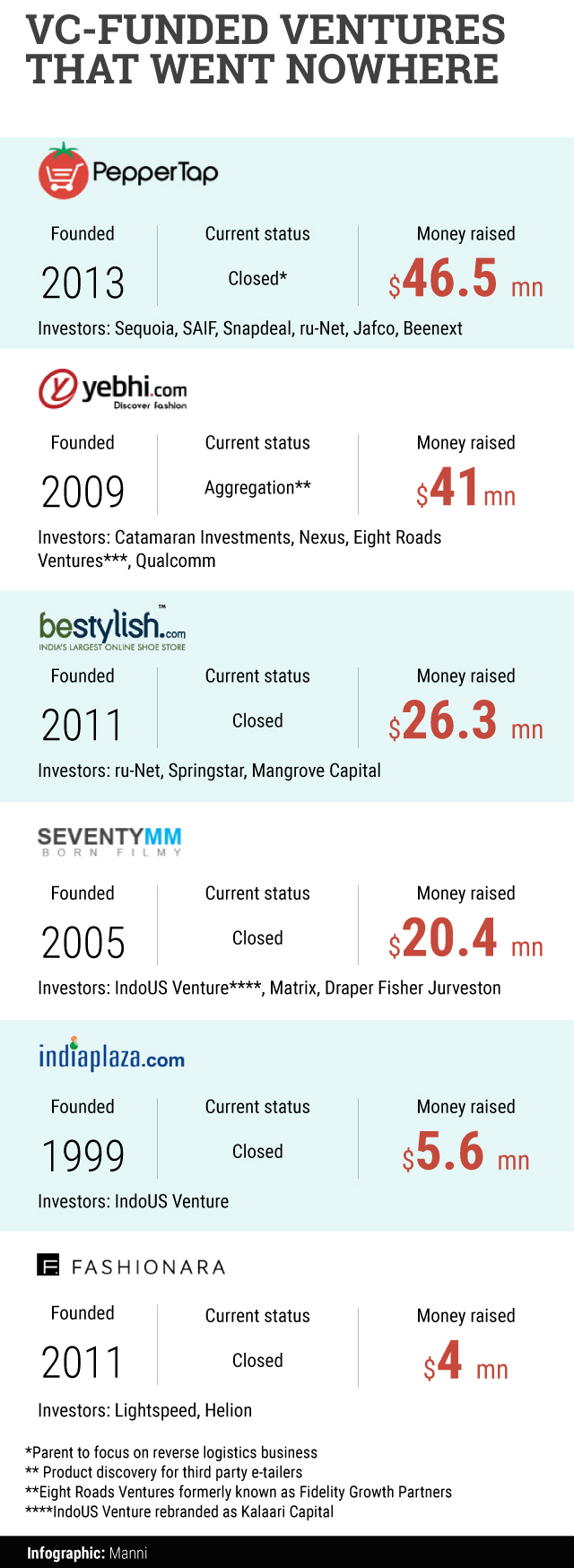At the fag end of 2011, daily deal startup Taggle pulled the plug on its business. This was one of the first venture capital backed causalities in the e-commerce domain in India. Battery Ventures and Greylock Partners-backed Taggle had already tried to reinvent itself having changed its business model from a group buying venture to a general e-commerce site.
What started with Taggle has only gained pace with scores of startups shutting shop over the past year as capital flow started drying from the second half of 2015, according to VCCEdge, the data research platform of VCCircle. These were not as lucky to have been funded by a VC firm that could merge them with another portfolio firm in the peer group or to find an employer soon enough to get 'acqui-hired' as a face-saving gesture.
That apart there are hundreds of 'zombie' ventures that barely exist having long discontinued their core business.
Here we take a quick peek at half a dozen well-funded ventures that decided to call it a day.

Peppertap as a venture is shut but the company that raised the capital is alive and continues to focus on its reverse logistics business. Yebhi having pivoted twice—from shoe e-tailer BigShoeBazaar to lifestyle e-commerce venture to its latest avatar—is also still alive as a site. It is now a fashion discovery portal for third-party sites such as Jabong and ASOS.
Yebhi's peer BeStylish too tried the same. Having pivoted from shoe e-tailer to an aggregator site, it later pulled the plug on the business.
Seventymm pivoted from a Netflix clone offering online DVD rentals to an e-commerce site before going blank.
Among others, there was IndiaPlaza, one of the early movers into e-commerce. Starting as Fabmart.com in 1999, offering only music CDs for sale, it later added many categories to become a horizontal e-commerce venture. But it realised it was way too behind in the game to continue.
To be sure, the founders of these ventures tried different tricks of the game, changing business model once, twice or even more. But they did not do so as quickly as Indian unicorns Snapdeal, which changed tacks multiple times before hitting the jackpot and InMobi, which started out as a SMS-based search platform before becoming a mobile discovery and advertising platform.
Like this report? Sign up for our daily newsletter to get our top reports.






